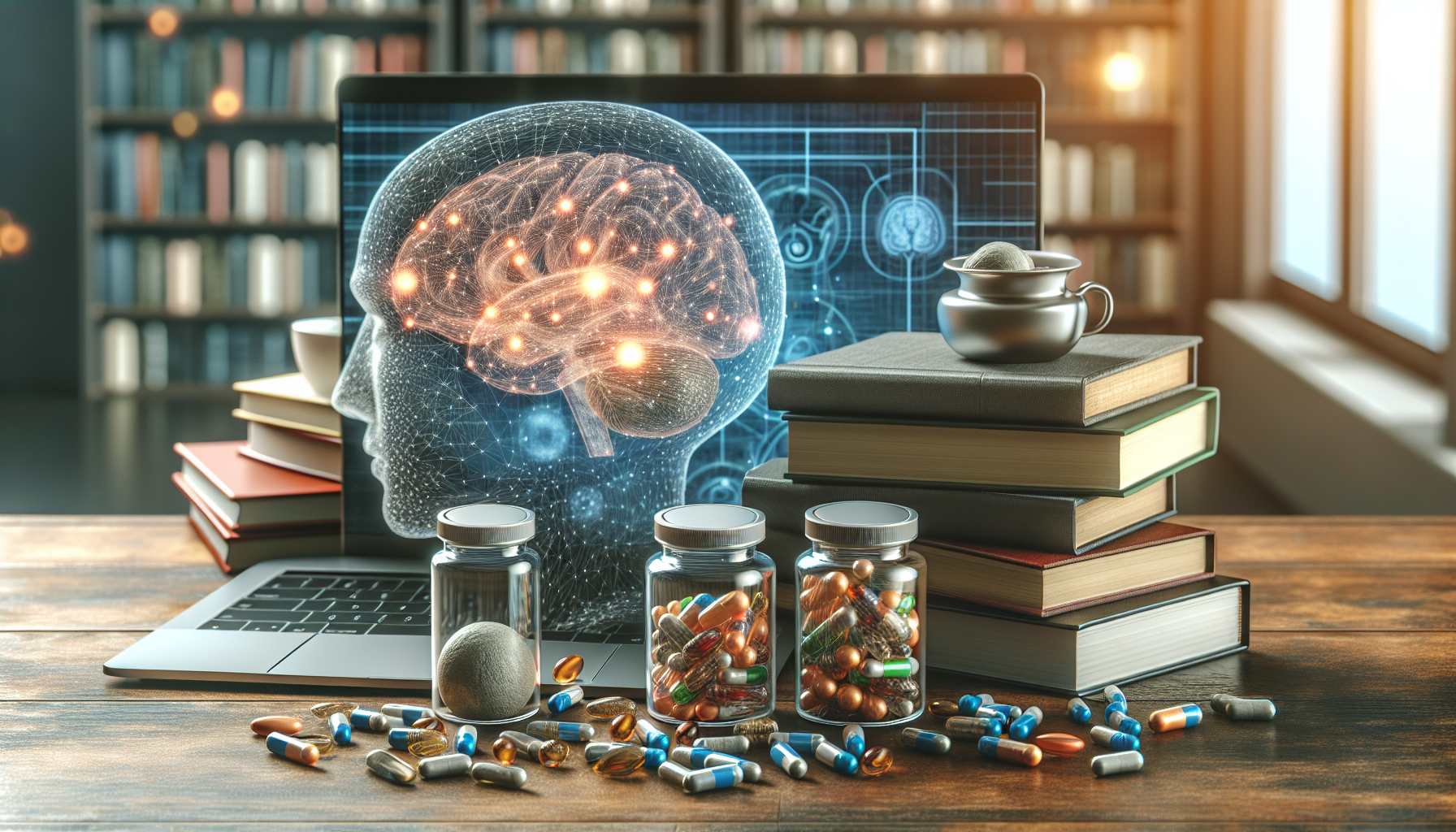In our fast-paced world, cognitive function is more valuable than ever. As we juggle the demands of work, personal life, and the pursuit of knowledge, many turn to nootropic supplements to enhance their mental capabilities. The term "nootropic" comes from the Greek words "nous," meaning mind, and "trepein," meaning to bend or turn. True to their name, nootropics are substances that claim to improve cognitive function, particularly executive functions, memory, creativity, or motivation, in healthy individuals.
What Are Nootropics?
Nootropics, often referred to as "smart drugs," are a class of cognitive-enhancing supplements that are used to improve concentration and boost memory power. They are believed to work by altering the availability of the brain’s supply of neurochemicals (neurotransmitters, enzymes, and hormones), by improving the brain’s oxygen supply, or by stimulating nerve growth.
The quest for brain health is a significant aspect of modern health science, and as such, nootropics have become a subject of increasing interest. For those keen on nurturing their mental acuity, brain health is a topic of paramount importance.
Types of Nootropics
Nootropics can be divided into three main categories: dietary supplements, synthetic compounds, and prescription drugs. Dietary supplements like Ginkgo biloba, Panax ginseng, and Omega-3 fatty acids are widely available and are known for their memory-enhancing effects. Synthetic compounds such as Racetams and Modafinil have a stronger effect on the brain and are often used in treatment for conditions such as narcolepsy. Prescription drugs like Adderall and Ritalin are used to treat ADHD and other cognitive impairments but are also used off-label as cognitive enhancers.
Efficacy and Safety
As the market for cognitive enhancers grows, questions about their efficacy and safety are at the forefront of consumer minds. It’s crucial to evaluate the efficacy of herbal supplements and understand the truth behind nutritional supplements by dispelling common myths and facts.
Scientific Support for Nootropics
While some nootropics have been the subject of scientific research, the evidence for many of these substances is mixed or inconclusive. For instance, the synthetic nootropic Piracetam has shown some promise in improving the cognitive function of individuals suffering from cognitive decline, but evidence for its effectiveness in healthy individuals is less robust.
To provide a balanced view, it’s important to reference high-quality, external resources. For example, a study on the cognitive-enhancing effects of Panax ginseng and a review on the use of Omega-3 fatty acids for brain health offer insights into the potential benefits of these supplements.
Safety Considerations
The safety of nootropics is another concern. While many are considered safe, especially those that are naturally sourced, synthetic nootropics and prescription drugs come with a risk of side effects and potential for abuse. It is imperative to understand the interactions of multiple medication use and consider medication and supplement use within the context of an individual’s lifestyle.
Personalized Approaches
Personalization in medicine is gaining traction, and the use of nootropics is no exception. The concept of personalized medicine and supplement use is particularly relevant here, as individual responses to nootropics can vary greatly based on genetic makeup, existing health conditions, and other factors.
Nootropics and Brain Health
Nootropics are often used with the goal of maintaining or improving brain health. However, a holistic approach to brain health should also include diet, exercise, and mental activities. Resources that delve into the link between fitness and cognitive function, such as an article on the impact of regular exercise on brain health, can provide valuable information for those looking to enhance cognitive performance through lifestyle changes.
Future of Nootropics
The future of nootropics looks promising, with ongoing research and the development of new compounds. Advancements in understanding the brain’s biochemistry and the discovery of novel nootropic substances could lead to more effective and safer cognitive enhancers. Keeping an eye on advancements in supplement delivery systems is also key to ensuring optimal absorption and effectiveness of these supplements.
Conclusion
The rising trend of nootropic supplements for cognitive enhancement reflects a society that values mental performance and is continually seeking ways to optimize human potential. While the allure of nootropics is strong, it is essential to approach their use with caution, thorough research, and ideally, under the guidance of a healthcare professional. By combining nootropics with a healthy lifestyle and personalized approach, individuals can make informed decisions in their quest for improved cognitive function.



